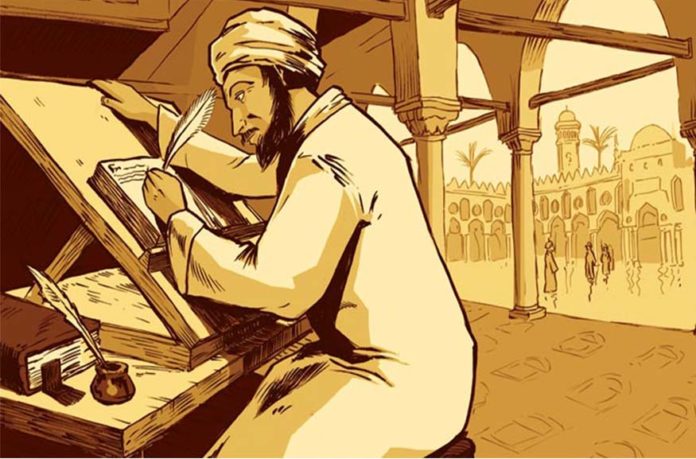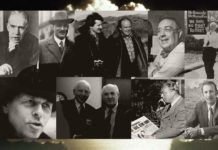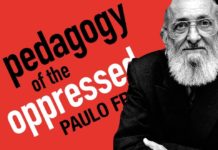Disclaimer: The Eqbal Ahmad Centre for Public Education (EACPE) encourages critical and independent thinking and believes in a free expression of one’s opinion. However, the views expressed in contributed articles are solely those of their respective authors and do not necessarily reflect the position or policy of the EACPE.
Science flourishes in a society where free and critical thinking is allowed and promoted. Greece conquered the world through their knowledge and philosophy because the society to some extent was flexible in nature. They gave medicine, astronomy, law, mathematics and other natural and social sciences to the world because of their free academic environment. Due to these contributions they are still alive in the world of philosophy and science. When Roman Conquered the Greece militarily they conquered the Roman through their knowledge as the Greece teachers used to teach the children of the Roman.
After the Roman, there starts the rising of Muslim Empire when the Holy Prophet united the warring tribes of Arabs under the umbrella of Islamic teachings which resulted in the expansion of empire to Spain and subcontinent in later periods. The peak time of Muslim civilization started when Mamun al-Rashid, son of Abbasid king Harun al-Rashid, laid the foundation of Bayt-ul-Hikma (House of Wisdom) in 9th century where Muslims, Jews and Nestorian scholars and scientists started work on translating Greece’s contributions to Arabic language. They translated their work on astronomy, mathematics, physics, chemistry, biology, botany and philosophy. Similarly they translated some of the Sanskrit work and learned Hindsa from Indians and developed it to the modern shape.
Due to the cultural mixing of Iranians, Muslims, Jews and Nestorians there was toleration, acceptance and cooperation in the society. This period of Muslim’s peak was from 9th to 12th century followed by a massive decline due to the revivalist movements of some rigid Muslim theologians. Among them Imam Ahmad bin Hambal (died 855 A.D) was the first who strongly opposed philosophy and critical thinking. He was of the view that we should not dare to say what had not been said by the Holy Prophet. Due to this movement riots occurred in the streets of Baghdad causing hundreds of causalities.
Another was Imam Al-Ghazali (died 1111 A.D) who persuaded the Muslims to solve their problems on the basis of spirituality, and not on the basis of reasoning and logic and thus laid the foundation of mystical knowledge. He challenged philosophers in his famous book Tahafut al-Falasifah (The Incoherence of Philosophers) in a manner that caused the age of decline in science in the Muslim World and stopped critical thinking.
If we look back at history, we find how home-grown religious orthodoxy was responsible for naming the intellectual giants of Muslim civilisation heretics and for their persecution.
For instance, Muslim philosopher Ibn Rushd (Averroes) was the first Muslim who had belief in evolution but he was declared as non-Muslim. His books were burned in Spain and Marrakesh.
Ibn-e-Sina (Avicenna) was another bright Muslim mind who became the victim of extremist rows. Even though he memorized Holy Qur’an at the age of 10, but still he was declared heretic and his books were banned.
Al-Kindi was another polymath at the House of Wisdom. He wrote more than 260 books on various subjects like Math, Physics, Philosophy and Music. When Khalifa Al-Mutawakkal ascended to the throne, he confiscated the personal library of Al-Kindi and lashed him 50 times in front of crowd which resulted in his death.
Another Muslim scientist Muhammad ibn Zakariya al-Razi was beaten on head with his book that made him blind. Similarly Al-Farabi and other Muslim philosophers and scientists were declared as heretics through fatwas by the ulemas of the time.
Today Muslims are living in a false pride that what Europe is discovering today had already been discovered by Muslims centuries ago, and that too by taking inspiration from religious scripture. On the contrary, Muslim legendary scientists of the past were mistreated and declared as heretics in their time.
It will be wise for Muslims to adopt the path of science and work for the development of an open society based on the spirit of compassion and rational inquiry.
The foundation of blind belief laid by Imam Al-Ghazali and other theologians had pushed the Muslim World to such dark age where everything has to be measured on the basis of faith and every aspect of life has to be dominated by religion. The Muslims of 21st century are outdated as they are living with the ideas and knowledge of hundreds centuries ago due to which they are unable to meet new challenges of this century. They must enlighten themselves through modern knowledge to progress well.
Muslims should not involve themselves in sectarian controversies and should refrain themselves from wasting their energies in declaring who’s Muslim and who’s not, and who will go in heaven and who will not. It will be wise for them to adopt the path of science and work for the development of an open society based on the spirit of compassion and rational inquiry.
The author, Ziaullah Khan, is a fresh graduate in Pakistan Studies from Govt. Post Graduate College, Mansehra. He can be reached at ziaullahkhan908@gmail.com







